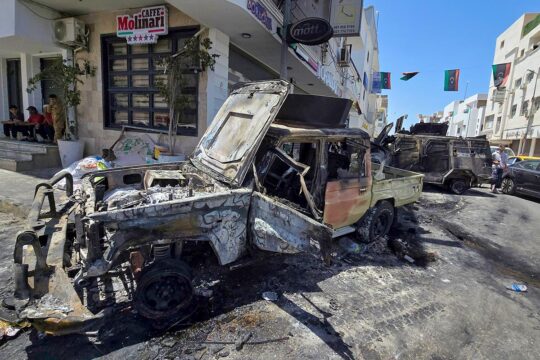Former Serb military commander Ratko Mladic was "not a monster" and should be acquitted of genocide and war crimes, his defence argued Friday, insisting the prosecution had failed to prove his role in the Bosnian war.
Once dubbed "the Butcher of Bosnia", Mladic, 74, has denied 11 charges including two of genocide, as well as war crimes and crimes against humanity for his role in the bloody 1992-95 Bosnian conflict.
"Ratko Mladic is not a monster, he was a soldier defending against a monster, that was the Islamic war machine," his lawyer Branko Lukic told the International Criminal Tribunal for the Former Yugoslavia.
The defence is spending three days presenting their closing arguments ending his trial which opened in May 2012. His case is the last before the ICTY which closes next year, and a verdict is expected sometime before November 2017.
Prosecutors urged the UN judges on Wednesday to jail Mladic for life, accusing the former Serb commander of a ruthless campaign of ethnic cleansing to create a Greater Serbia in the 1990s Balkans wars.
"It would be... an insult to the victims, living and dead, and an affront to justice to impose any sentence other than the most severe available one: a life sentence," prosecutor Alan Tieger told the tribunal.
"The time has come for General Mladic to be held accountable for those crimes against each of his victims and the communities he destroyed."
But his defence team shot back on Friday that Mladic was "an innocent man".
The prosecution had attempted "to pump General Mladic up to superhuman proportions and abilities as if he was all knowing and all powerful," said Lukic.
"It is our job to remind your honours, remind the prosecution and remind the public, not only watching today but future generations who will judge these proceedings as a part of history, that Ratko Mladic is a person not a superhuman being," Lukic said.
"Ratko Mladic is an accused, who stands before you an innocent man."
He alleged that the prosecution's reasoning would see every soldier in every war found guilty, and urged the judges to find that the prosecution had failed to prove Mladic's guilt beyond all reasonable doubt.
"He is guilty for the prosecution just because he is a Serb and tried to defend his country, first Yugoslavia, and then Republika Srpska from attacks and war that were started and pursued by others, not by Serbs."


